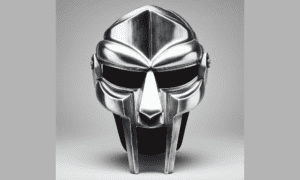
OUTKAST IN THE HALL: THE SOUTH GOT SOMETHIN’ TO SAY (AND NOW IT’S INDUCTED)
By Talmage Garn | November 2025
The Rock & Roll Hall of Fame finally caught up to Outkast, or maybe the other way around. At the 2025 ceremony in Cleveland, Donald Glover stepped up to the mic and spoke like a disciple at a cosmic sermon. “Outkast was able to distill the polarizing nature of being not just from the South, not just being Black, but being human in a very polarizing and contradicting world,” he said, his tone a mix of gratitude and revelation.
Then came the music. Big Boi, in full command, joined by JID, Doja Cat, Tyler, the Creator, Janelle Monáe, and Killer Mike, a lineup that felt like a constellation of their descendants. André 3000 was there too, serene and spectral, content to let the music do the talking. Big Boi grinned like a man whose patience had finally paid its dividends.
How Outkast’s Beats Bent Space and Time
To understand how Outkast arrived here, you have to trace the path that started in a teenage lunchroom and ended in the Library of Congress. Their 1994 debut Southernplayalisticadillacmuzik cracked open the door for Atlanta hip-hop. ATLiens and Aquemini blew it wide open. That trifecta, still highlighted in Hip-Hop’s Greatest Three-Album Runs, made them more than chart fixtures; they became philosophers in bucket hats.
When Stankonia dropped in 2000, the sound was seismic. As explored in Outkast’s Stankonia Turns 25 and Still Bumps and Stankonia Shook the World: Rebirth of the South, the record’s futurism was so bright it practically glowed. “B.O.B. (Bombs Over Baghdad)” detonated radio convention at 155 BPM, sprinting past the mainstream with uncontainable velocity. The site’s Sonic Boom retrospective described it as “a baptism in chaos, funk, and faith,” proof that speed and soul could share the same body.
Those instincts carried into Speakerboxxx/The Love Below, the diamond-selling double album that Glover referenced in his induction speech. It wasn’t a single record so much as a dialogue between planets. Big Boi stayed grounded in rhythm and soul. André floated somewhere near Saturn. The result became the highest-selling rap album in history, a cosmic conversation between discipline and dream.
“IRON SHARPEN IRON,” THEN AND NOW
When Big Boi and André 3000 took the stage together in Cleveland, they didn’t just perform; they communed. After three rounds of rock-paper-scissors to decide who would speak first (Big Boi won, naturally), the words hit with simple power. “Thank you for making me be the best I can be,” Big Boi said to his partner. “Iron sharpen iron.”
It wasn’t a reunion of nostalgia but one of gravity. Outkast never broke apart; they simply followed different orbits. Big Boi became the Southern statesman, the man who built a city’s sound and kept it running. André became the wanderer, a flutist on sidewalks, a philosopher in sneakers, still magnetic even in silence.
Their paths diverged, yet both point toward the same horizon. Outkast has always been more of a dialect than a duo.
A SOUTHERN RECKONING, NOT A SENTIMENTAL ONE
This was recognition, not reminiscence. When Glover inducted them, he wasn’t handing them a trophy. He was returning a debt. Everyone on that stage owed Outkast something: Monáe’s Afrofuturist pageantry, Tyler’s maximalist surrealism, Doja’s genre acrobatics, Killer Mike’s civic sermons, JID’s elastic flow.
For years, the Rock Hall treated hip-hop as a guest star. Now the house itself bears Southern blueprints. As noted in Outkast Finally Lands in the Rock Hall, this was a correction years in the making. Atlanta’s influence is no longer regional; it is gravitational. The Hall didn’t just induct a rap group. It inducted an idea that the South, long overlooked, had always been the center of gravity.
STANKONIA, FOREVER IN THE FUTURE
Legacy for Outkast looks like motion without noise. André’s quiet, flute-carrying presence spoke louder than a speech. Big Boi’s precision on stage reminded the world that mastery doesn’t fade; it settles. Their dynamic, always defined by tension and trust, felt intact.
As seen throughout the Outkast Tag Archive and Big Boi Tag Archive, their story never paused. It only changed keys. Every generation of Southern rap, from Run the Jewels to EarthGang, still carries its blueprint.
If Stankonia was hip-hop’s big bang, the Rock Hall induction is its echo. Outkast’s inclusion isn’t a closing chapter. It’s a reminder that the future they once imagined already exists around us.
Big Boi’s final words lingered like a benediction: “Iron sharpen iron.” A line between brothers, a truth for a culture.










